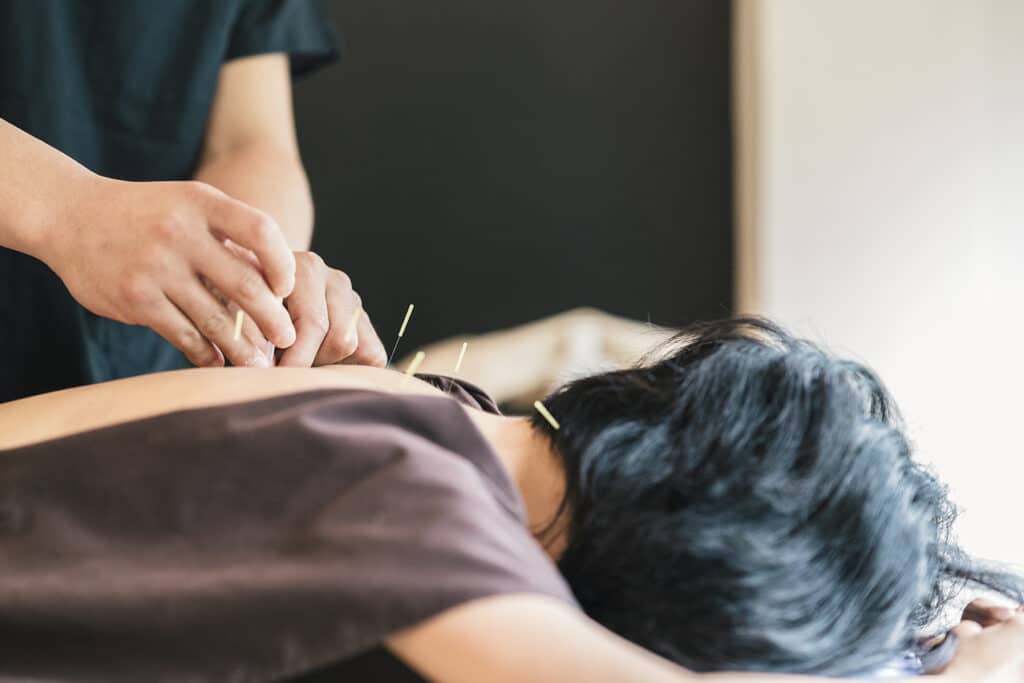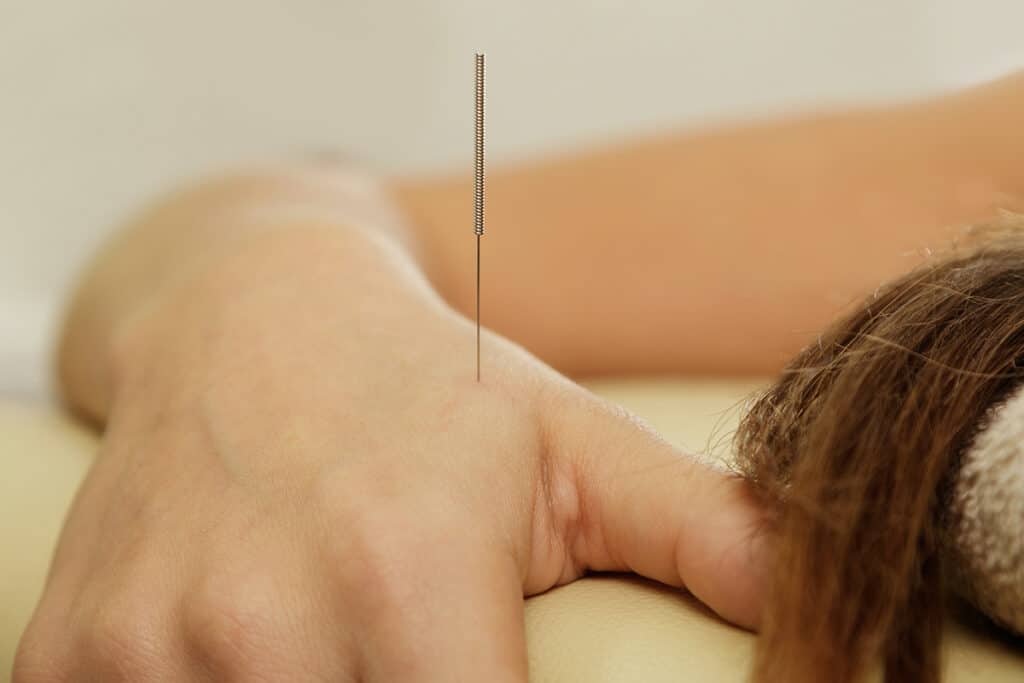
Table of Contents
ToggleIn our fast-paced world, juggling the demands of daily life and work-related stress, achieving and maintaining optimal health has become paramount.
An increasing number of individuals are gravitating towards therapeutic modalities that not only target specific symptoms but also foster holistic well-being.
Enter acupuncture—a key component of Traditional Chinese Medicine (TCM)—which prompts the question, “Acupuncture, does it work?” As we journey through this blog post, we aim to unravel the mysteries surrounding this age-old practice, shedding light on its principles, benefits, and the science behind its efficacy.
Originating in ancient China and practiced over millennia, acupuncture remains a prominent facet of healthcare and wellness today.
This time-honored tradition is rooted in the concept of balancing the body’s life force or “Qi” (pronounced “chi”) — a principle that continues to resonate with contemporary medical perspectives.
The Advantages of Acupuncture Explored:
The exploration of “Acupuncture, does it work?” becomes clearer when we dissect the plethora of benefits it brings.
These represent just a snapshot of the benefits that acupuncture offers. Its influence spans across a vast array of health dimensions, further reinforcing a positive response to the question, “Acupuncture, does it work?” Indeed, the proof of acupuncture’s efficacy lies within its broad spectrum of health advantages.
Different types of acupuncture cater to specific health needs. Understanding these can help clarify what to expect from an acupuncture session.
Each type offers unique benefits and can be used depending on the specific needs of the individual.

The science behind acupuncture involves multiple theories. One widely accepted explanation is the “Gate Control Theory of Pain,” suggesting that acupuncture works by blocking pain signals from reaching the brain.
Another belief from TCM is that acupuncture helps balance the flow of energy, or “Qi,” within the body, restoring health and well-being.
Like all healthcare services, selecting the appropriate practitioner is paramount for a beneficial acupuncture experience. Here are some critical considerations:
By focusing on these aspects, you can ensure a positive acupuncture experience that could lead to successful therapeutic outcomes.

For those wondering, “Acupuncture, does it work?”—a typical session can provide firsthand insights. Here’s what a standard acupuncture treatment might look like:
Even with a grasp on the process and benefits, you may still question, “Acupuncture, does it work?” Here are answers to some common queries:
Is acupuncture safe?
When performed by a qualified practitioner, acupuncture is generally safe. Side effects, such as minor bruising or bleeding at the needle sites, are usually mild.
Most people feel minimal pain as the needles are inserted. Once the needles are in place, there should be no significant discomfort.
The number of sessions varies based on individual health needs and goals. Some people experience improvement after a single session, while others might need multiple sessions over a period.
In addressing the inquiry, “Acupuncture, does it work?” it becomes clear that acupuncture’s enduring presence throughout centuries is not without reason.
Its impressive roster of benefits spans the spectrum of health, offering solutions for pain management, enhanced digestive functions, and improved mental well-being.
Thus, acupuncture transcends its image as a mere procedure involving needles—it serves as a vehicle driving the journey towards comprehensive health and wellness.
Ready to discover the healing power of acupuncture? Dive in now and uncover the truth behind its age-old benefits. Does it really work? Find out!
GET IN TOUCH +
285 Sills Road
Building 5-6, Suite E
East Patchogue, NY 11772
(631) 475-5511
184 N. Belle Mead Road
East Setauket, NY 11733
(631) 675-6226
GET IN TOUCH +
285 Sills Road
Building 5-6, Suite E
East Patchogue, NY 11772
(631) 475-5511
184 N. Belle Mead Road
East Setauket, NY 11733
(631) 675-6226
SUBSCRIBE TO OUR NEWSLETTER +
Send us a Google review. Click this link and let us know how we did!
Review us on Yelp too.